Seminar Blogs
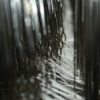
“Art without an aura: Techne in the digital age” – Angelo Zinna
Jason Tuckwell’s lecture “Agency and technē in creative practice” drew attention to the role of technical skill in the production of art, questioning whether it is worth revisiting the traditional view of “art as aesthetics” rooted in the Platonic concept of poesis. By juxtaposing the “particular” character of technē to the “universal” essence of nature,…
Read more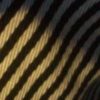
“The question concerning technē” – Christl de Kloe
In the first Transmission in Motion seminar of this year called“Agency and Technē in Creative Practice,” Dr. Jason Tuckwell critiqued contemporary understandings of ‘the work of art’. He started by explaining that there are generally two ways of thinking about art which stem from the Greeks; the first is poiesis, where art is understood as…
Read more
“Function of Exploration” – Aishwarya Kumar
In his 2012 TedEd talk, marine biologist David Gallo illustrates the idea of exploration by stating that we, as humans have ‘explored’ only 5% of what is in the oceans. By exploration, he means to “go peek and see what’s there” and uncover, reveal, bring to the front, what was invisible or unknown[1] and that,…
Read more
“Craftsmanship as a Common: Discovering Intersections Between Science, Craft, and Performance” – Mavi Irmak Karademirler
For the final Transmission in Motion seminar, Prof. Dr. Roger Kneebone and Dusia Kneebone talked on the relationalities between medical practice and craftsmanship and pointed out to the potentials of them informing each other in terms of practice. Coming from a medical background and being a professor of anatomy, Professor Roger Kneebone also directs the…
Read more
“The Gesture of Letting Go” – Laura Jimenez Rojas
The last TiM seminar of this year “The Art of Performing Science” brought a new perspective to think of the meeting of two -apparent- separate worlds: art and medicine. Roger Kneebone, professor of surgical education and director of the Centre For Performing Science at Imperial College London, presented how by the gathering of artists and…
Read more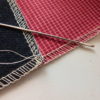
“Sewing, sewing, sewing” – Jose Hopkins B.
In her book Travelling Concepts in the Humanities: A Rough Guide, Mieke Bal (2002) presents us with a particular way to understand the performance of concepts and its relation with subjects and objects. She argues that concepts are not fixed as they travel between disciplines, individual scholars, geographically dispersed academic communities and so on. Therefore,…
Read more
“A contextualization of interdisciplinarity” – Gido Broers
What is context? Since context is a concept that can be applied to many domains and functions as a base for interdisciplinary research (and practice), it is relevant to start here with a brief description of this concept, as described by Kaiyu Wan: The word “context” is derived from the Latin words con (meaning “together”)…
Read more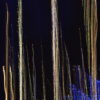
“The open dramaturgy of a digital archive project” – Gido Broers
Eef Masson addressed in her lecture “Experience and Experimentation in the Sensory Moving Image Archive Project” several issues with regards to digital archives, and more specifically in the context of the Sensory Moving Image Archive Project. The aim of this project is “to establish how these groups [artists, the creative industries and researchers] can explore,…
Read more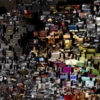
“Reconsidering Digital Moving Image Collections- SEMIA project” – Mavi Irmak Karademirler
The digitization of collections and archives adds a new dimension to the pre-existing materiality of sources; this implies that the research can be done on a much larger scale (Van Dijck 2016). For this reason, the development of tools for research is getting more and more critical. With digitization, the use of the archives has…
Read more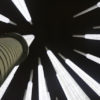
“Sense-ing the Digital Archive” – Dennis Jansen
The archive in digital space, whether born-digital or digitized from an existing collection, presents us with a variety of challenges related to its ontology. The first instinct may be to say that the digital is a deceptively ‘flattening’ medium—while it ostensibly contains all other media, it reduces their materiality to pieces of software displayed on a…
Read more
